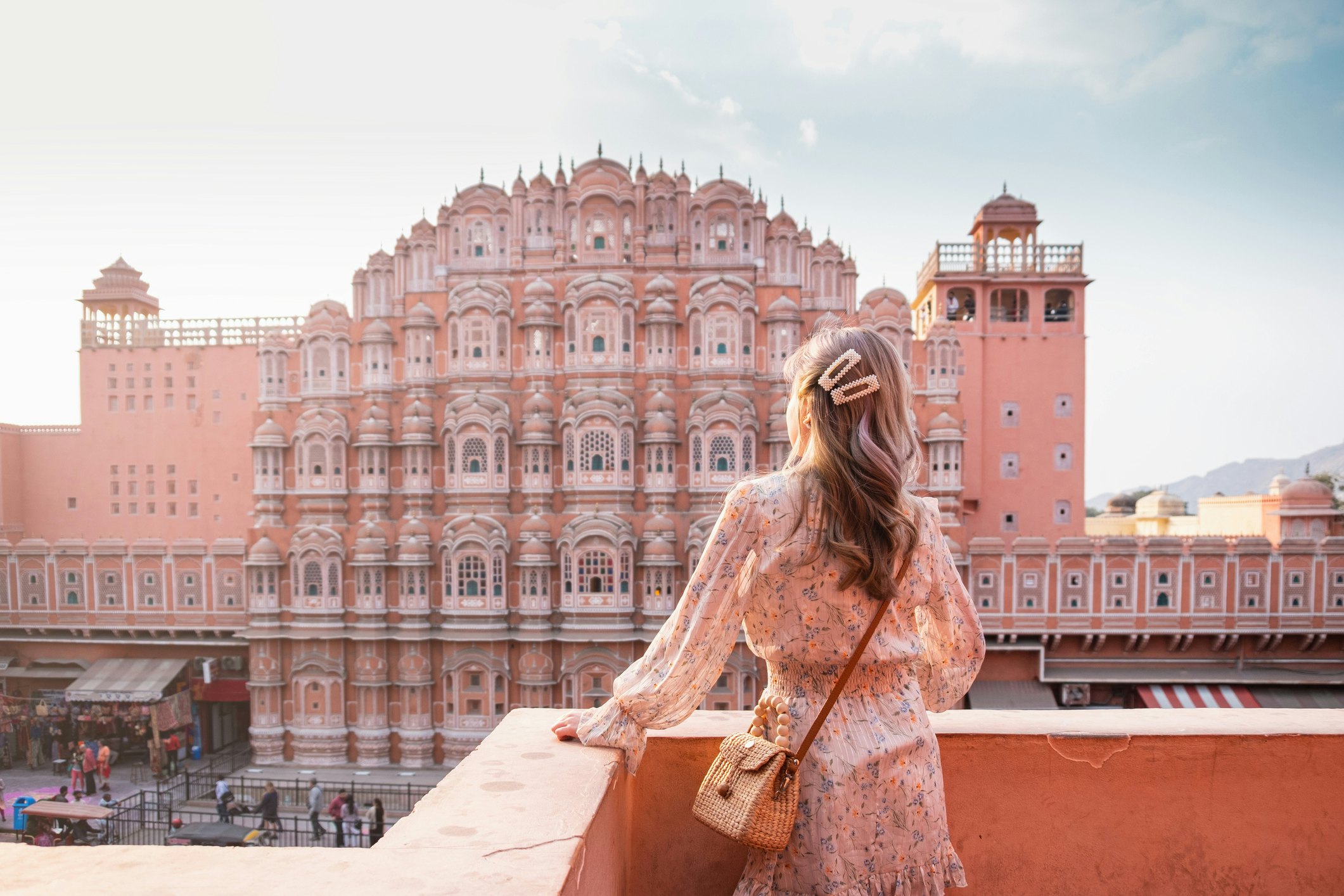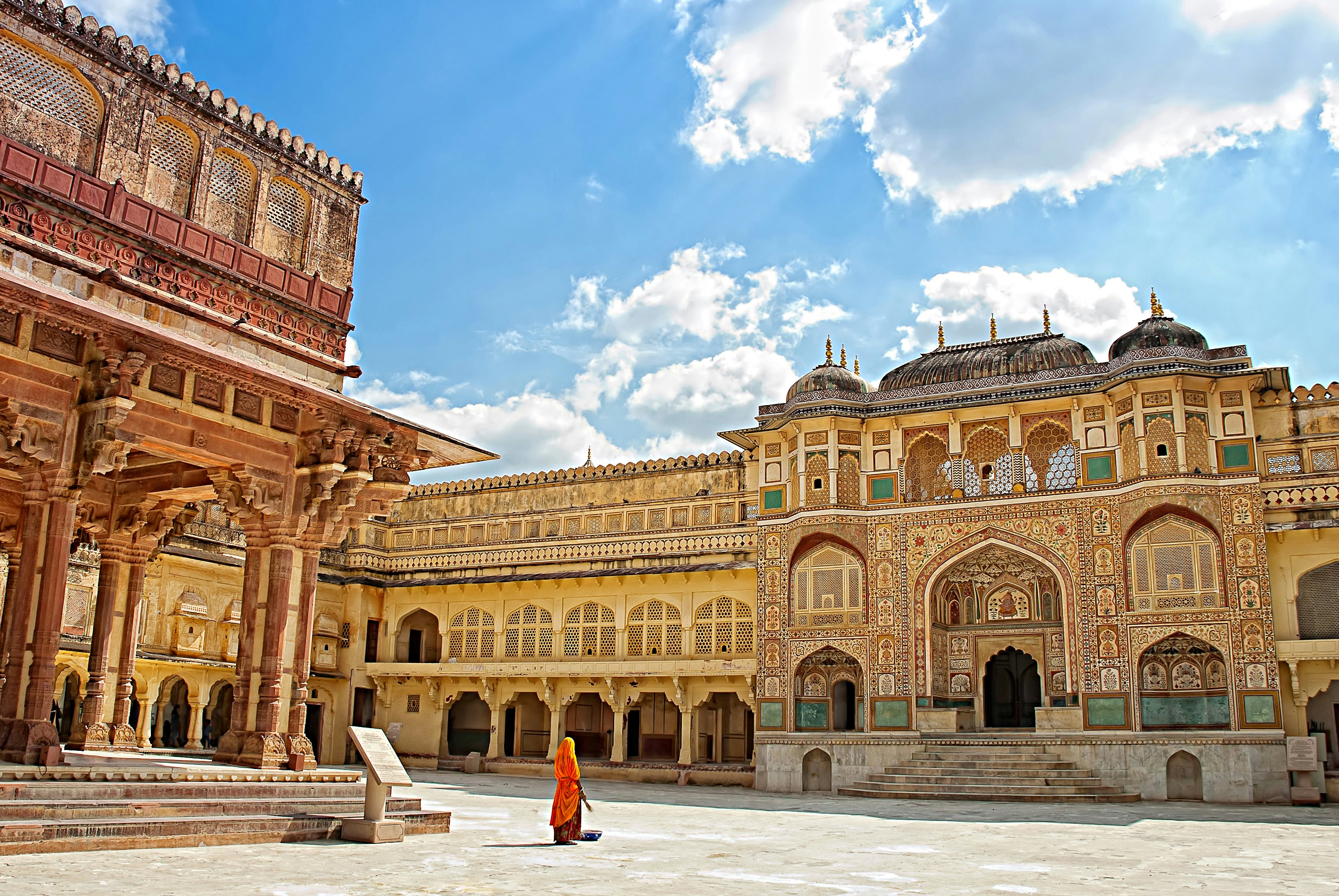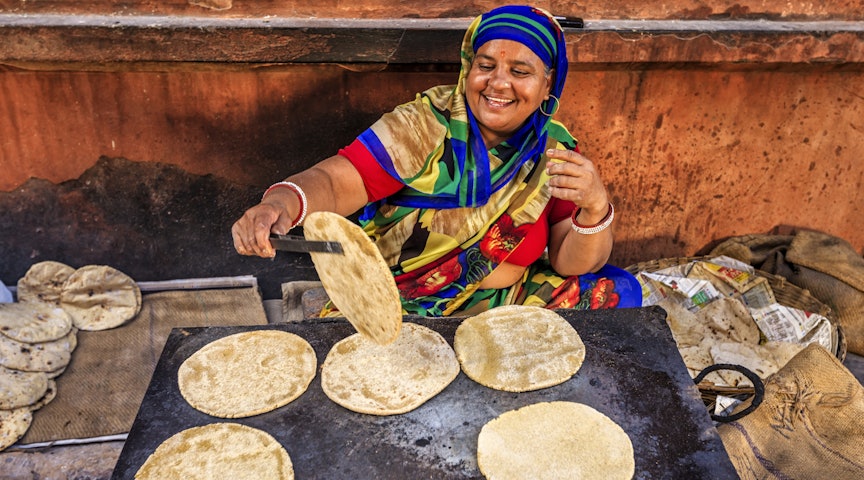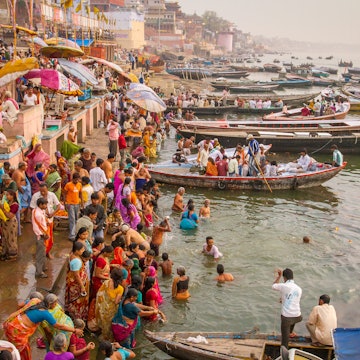
Agra vs Jaipur: which Indian city is best?



If you've only got time for either Agra or Jaipur, Lonely Planet writers can help you choose © iStock
Deciding where to visit in India is not easy.
When deciding where to visit in India, you might be weighing up Agra, home to the unrivaled Taj Mahal, against Jaipur, Rajasthan's regal Pink City.
We asked two writers to make the case for each Indian city.

Agra has the Taj Mahal. What more do you need?
Bradley Mayhew is a Lonely Planet guidebook writer, who specializes in Central Asia and is particularly passionate about India's Agra.
Don’t worry, this won't take long, in fact just two words should do it: Taj Mahal. Game over. Mic drop. Thanks for coming.
It really should be illegal to travel to India and not see the Taj Mahal. It is quite possibly humanity’s most beautiful building; a love poem carved out of white marble, a soaring monument to love and loss, or, in the words of Indian poet Rabindranath Tagore, a "teardrop on the cheek of eternity." It was commissioned by Emperor Shah Jehan in 1641 as the final resting place of his beloved wife Mumtaz Mahal.

A single viewing of this near-perfect building is not going to suffice; you’ll want to re-view it from the banks of the Yamuna River, framed in the symmetry of a Mughal garden, or through a delicate marble screen in Agra Fort. In places it rises above the modern city, at others it reveals itself slowly through the morning mist. Its scale is epic and yet every inlaid detail is as delicate and intricate as lace.
No one traveling with their romantic partner can afford not to add the Taj Mahal to their itinerary. No self-respecting narcissist with an Instagram account will be able to resist posting a selfie with this true icon of India.
But there is so much more to Agra than the Taj. Agra is India's great Mughal city, founded by the Uzbek Emperor Babur in 1526 and elevated to unmatched splendor as the stop-start capital of Mughal emperors Akbar, Jahangir and Shah Jehan. For over half a century it glittered as the capital of the world’s richest empire. Today the city boasts three UNESCO World Heritage Sites, including the Agra Fort, one of India's most magnificent, full of pavilions, pools, scallop-shaped arches and impenetrable walls, that doubled as a gilded prison for Shah Jehan, after his son Aurangzeb seized power and threw him in jail here for eight years.

The list of Agra’s other magnificent monuments can fill days of sightseeing: the huge Mausoleum of Emperor Akbar, the greatest of all Mughal emperors; the epic Friday Mosque with its three sandstone domes; and the white marble tomb of Itmad-Ud-Daulah, nicknamed the "Baby Taj." Fans of history can spend days here tracking down the bones of the imperial past.
OK, so, yes, Agra can be busy with tourists and is famous for its touts (though these are nothing compared to the pros waiting for you in Rajasthan!), but this also means there's a lot on offer here, from exclusive moonlight walks around the Taj (five nights a month) to guided rickshaw tours of the old town. There are also some great meals here, centered on the city’s creamy Mughlai curries, and finished off with a chunk of the city’s favorite sweet, peita, a confection of pumpkin, sugar, rosewater and saffron.

If for some reason you need an added sweetener to visit Agra, consider the easy day trip out to magnificent Fatehpur Sikri, the huge, salmon-pink sandstone capital of Emperor Akbar, whose epic series of courtyards, Persian-style gatehouses and towering Friday Mosque (complete with sacred Sufi tomb) ranks as one of India’s most impressive day trips.
The icing on the cake? Agra is just a two-hour train ride from Delhi on India's fastest and most convenient train. You can even visit the Taj on a day trip if you are tight on time, though this monumental city really deserves at least several days.

Jaipur's colorful streets are brimming with energy
Shalbha Sarda is a true Jaipurite who grew up here, wandered far and wide, but returned to the city to call it her permanent home. Now, she's on a mission, grabbing every chance to spill the beans on what makes this Pink City oh-so-special.
The unparalleled beauty of the Taj Mahal cannot be denied! But once you've nailed that Instagram-worthy shot, the struggle to find more things to do in Agra is real. Jaipur is far superior as an overall destination, with unique and wonderful sights scattered like confetti.

The Mughals, who built the Taj Mahal, showcased their design, art and architecture in many Indian cities, but the rulers of Jaipur had other ideas. They borrowed all the good parts of Mughal designs and unapologetically fused them with their own styles, creating architecture that's unique to Jaipur. To see some, check out Amber Fort, the original royal palace; Jaigarh, the defence fortress housing the largest cannon in the world; and Nahargarh, a fort where the kings and queens vacationed. Those influences can also be seen in the architecture of Jaipur's palaces: visit City Palace, the current residence of the royals; the iconic pink Hawa Mahal, which has almost 1000 small windows; and Jal Mahal, a palace surrounded by water on all sides.
Jaipur also has more royal palaces than you can shake a scepter at, and many of them have been turned into luxury hotels. Stay smack in the middle of all that royal splendor and paraphernalia at places like the Rambagh Palace, the Jaimahal Palace, and Samodh Palace.

Thanks to its perfect backdrop of deserts, mountains and forts, along with its significant monuments, Jaipur has also been the muse for Bollywood filmmakers for decades. Visit the atmospheric stepwell at Nahargarh Fort, used in the 2006-movie Rang De Basanti, or the floral garden at Maota Lake near Amber Fort, a location in the 2015-film Bajirao Mastani.
The walled city of Jaipur is known as the Pink City, and it's not just a fancy name — many parts of it are actually pink! As you shop for souvenirs, your eyes will be caught by bursts of other vibrant hues, like the red and yellow bandhej turbans stacked on parapets in Johri Bazaar, flowing ombré tie-dye stoles at Bapu Bazaar, an array of rainbow colors of the resin bangles at Maniharon Ka Rasta, or the beads in jewellery at Haldiyon ka Rasta — every street in Jaipur is like a technicolor dream.

Time your visit for one of the city's festivals that honor gods and goddesses and celebrate the harvest – dates are based on the Indian Hindu calendar and can vary. At the spring Ganguar festival (March/April), and the monsoon festival of Teej (July/August), processions take place with caparisoned camels strutting their stuff, Kalbelia folk dancers twirling and spinning, and Manganiyar folk musicians bringing the groove. The Jaipur Literature Festival (January) brings Nobel laureates, Booker Prize winners, and literary legends under one roof.
Jaipur takes pride in its rich regional cuisine. Don't miss wholesome platter meals such as dhal baati churma, a lentil curry served with wheat balls and coarsely ground wheat mixed with jaggery or sugar, topped with a sprinkle of chopped nuts.
Unike in Agra, which has lost its royal vibe, the Maharajas of Jaipur still call this flamboyant city home. Once you're done exploring its rich royal history through the many forts and palaces, settle down streetside, sip chai and let the many colors of Jaipur wash over you.
Take your India trip with Lonely Planet Journeys
Time to book that trip to India
Lonely Planet Journeys takes you there with fully customizable trips to top destinations–all crafted by our local experts.




















